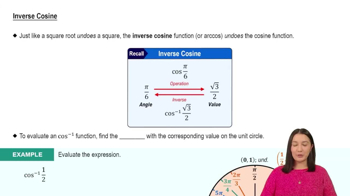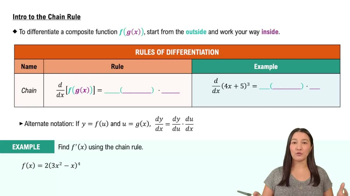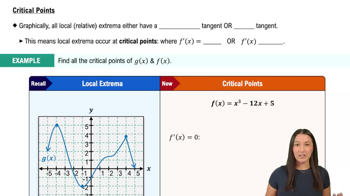Derivatives of products and quotients Find the derivative of the following functions by first expanding or simplifying the expression. Simplify your answers.
y = 12s³-8s²+12s/4s
 Verified step by step guidance
Verified step by step guidance Verified video answer for a similar problem:
Verified video answer for a similar problem:



 3:59m
3:59mMaster Derivatives of Linear Functions with a bite sized video explanation from Patrick
Start learning